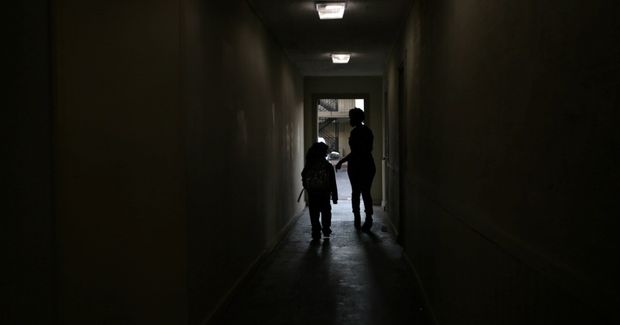How Mass Media Can Sink or Save Public Policy
Posted May 23rd, 2017 by SFUFF in General

Click photo to watch Frontline’s story “Poverty, Politics and Profit”
Many of you know that I have worked in the affordable housing for two last decades. Recently, Frontline aired a documentary about the Low Income Housing Tax Credit program (the number financing tool that produces most of the new supply of affordable housing nationwide) and the corruption of a few developers in Texas and Florida. I won’t go into how the Frontline “news” piece was one sided and how most folks working in the affordable housing industry refused to speak on camera because we knew it was going to be a hit piece. I won’t go into it because being on the defense is no use. Here is my letter urging my industry colleagues to take the offense and control of the narrative:
————————————————-
Dear Affordable Housing Umbrella Group,
As you know, I am an affordable housing finance consultant and the Founder and Executive Producer of the SF Urban Film Fest. I have worked for Bank of America and consulted many financial institutions including Union Bank, Silicon Valley Bank and the Northern California Community Loan Fund. I have also worked at Eden Housing and consulted non-profit housing developers including BRIDGE Housing and the Tenderloin Neighborhood Development Corporation. My commitment is deep and long standing to the affordable housing movement.
After watching the recent Frontline story that aired on PBS “Poverty, Politics, and Profit” and listening to the companion podcast on NPR, I am thinking about the other stories we could tell to take back control of the narrative of America’s housing dilemma.
We could have told story of a committed non-profit leader out-maneuvering decades of dwindling public subsidy by cobbling almost a dozen funding sources to make deals pencil.
Or we could have told the origin story of the Community Reinvestment Act that starts with one community activist working in red-lined sections of Chicago, and ends in a Federal statute that has the potential to bring banks to their knees.
Or we could have relayed the deal we made with the devil by underfunding HUD for decades and now Americans pay the cost of housing insecurity not only in high rent, but also in mental and physical health.
Back in mid 2014, I wrote an article about the need for the affordable housing industry to communicate the value of our work, the housing policy legacies that got us here, and even to dare to discuss the different visions of how housing should get built in this country. I had a sense that when very few constituents tried to stop the dissolution of the redevelopment agencies in California, that it was because the general population has no idea how affordable housing gets built and why.
I came to realize that bricks and mortar was not enough after working in affordable housing finance since the early 1990s. It slowly dawned on me that public policies are supported by the people and the values we hold. Thus, if it’s true that cultural norms drive public policy, a shift in norms would mean the life or death of certain funding sources.
And here we are. As Trump is debating the cut in federal corporate taxes, and perhaps a re-writing of the tax code, the question is how long until the LIHTC is put into the mix? Which voter understands what LIHTC is, much less will come to its rescue? And who will care? Had the affordable housing industry created a film like “An Inconvenient Truth” which pushed climate change into the hearts and minds of the general public (from what was a purely theoretical and data-driven debate among scientists), would we be as vulnerable today?
Short of a blockbuster like “An Inconvenient Truth”, I offer a few recommendations to start taking control of our own narrative:
– Include funds for communication strategy in project budgets;
– Hire professional storytellers as part of project teams (i.e. filmmakers, writers, graphic artists, etc.); and
– Support platforms that distribute policy-based media to broad audiences (like Make Room, SF Urban Film Fest and Hatch Labs)
If we can’t rely on media outlets, even supposedly progressive ones like NPR and PBS, to tell a balanced story about the problem of equity and housing in America, then it’s up to us to tell it.
I would be excited to work with your organization to further this goal.
Thank you for your time, attention and commitment to providing affordable homes.
Sincerely,
Fay Darmawi
Follow Us